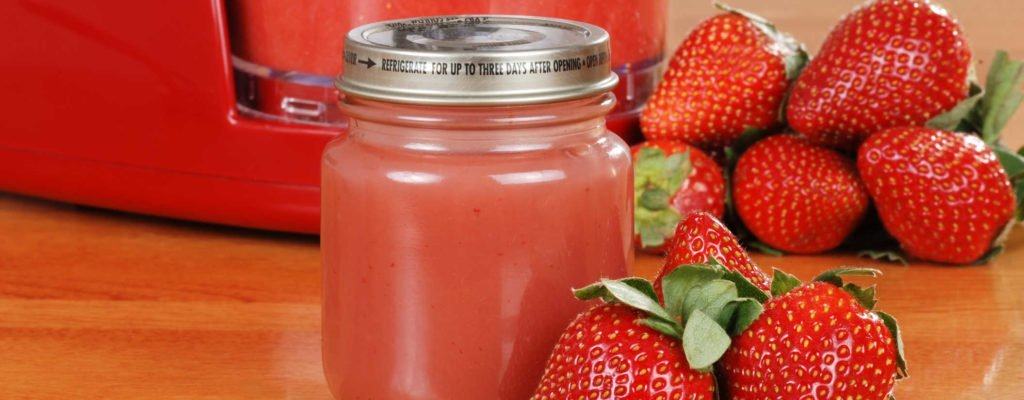Ways to determine an infants caloric needs

Learn how to determine your baby’s caloric needs, including the calories in breast milk and formula, to ensure your infant gets the right nutrition for healthy growth.

Starting to form good eating habits at a young age will help your child gain good eyesight and may reduce the risk of developing serious eye diseases later in life, such as cataracts. macular degeneration and diabetic retinopathy. Here are a few vitamins and nutrients that play a key role in helping your baby have a good vision:
Vitamin A - the first ingredient listed on the label of vitamin water bottles - is crucial to keeping your baby's eyes healthy. Vitamin A deficiency can cause night vision problems. In addition, it can cause severe dry eyes and can lead to eye infections and vision loss.
Also, pay attention to the yellow, orange, and red pigments in fruits and vegetables called carotenoids when preparing your baby's food. Carotenoids can be divided into three main groups:
Pre-vitamin A carotenoids: Alpha-carotene, beta-carotene and beta-cryptoxanthin are called pre-vitamin A carotenoids because your child's body converts them to vitamin A during digestion.
Lutein and zeaxanthin: Lutein and zeaxanthin are important substances for a baby's eyes because they help protect the retina from damage caused by the sun's harmful ultraviolet rays (UV rays) and possibly high-energy rays. see (HEV). Prolonged exposure to UV and HEV rays can damage your baby's retina and increase your baby's risk of developing macular degeneration.
Lycopene: Another important carotenoid to help your baby have good eyesight is lycopene. Lycopene is the pigment that gives tomatoes the red color, so the redder a tomato, the more lycopene it contains. In addition to tomato and tomato juice, lycopene is also found in watermelon, peach grapefruit, apricots and red oranges.
Vitamin C (also known as ascorbic acid) is a water-soluble vitamin and powerful antioxidant. Vitamin C is found in many fruits and vegetables. Foods with bright eyes that contain vitamin C include oranges and orange juice, red and green bell peppers, grapefruit, strawberries, broccoli and kale. Vitamin C is also very important for your baby's eyes. Studies show that vitamin C supplementation can reduce the risk of cataracts and macular degeneration in the future.
Bioflavonoids (also known as flavonoids) are a large group of natural pigments found in a wide variety of fruits and vegetables. They are a good source of vitamin C for your baby.
Vitamin E is a vitamin with powerful antioxidant effects and helps a child's body produce red blood cells. They also help reduce the risk of cardiovascular disease and prevent some types of cancer. Studies also show that vitamin E can help maintain good vision throughout a baby's life by reducing the risk of cataracts and macular degeneration.
If you still have concerns about the nutrition of your baby, see your doctor or a dietitian for timely advice and help.
Learn how to determine your baby’s caloric needs, including the calories in breast milk and formula, to ensure your infant gets the right nutrition for healthy growth.
Discover the top 5 smartest dog breeds in the world, including Border Collie, Poodle, German Shepherd, Golden Retriever, and Doberman Pinscher. Learn about their unique traits and why they are considered the most intelligent dogs.
Discover 7 nutritious and delicious ways to cook egg porridge for babies, including recipes with cheese, pumpkin, tomato, and more. Learn how to prepare baby-friendly egg porridge with our expert tips.
After a series of medical measures they obtained a complete human vascular system profile.
Watermelon is one of the fruits that many people love, not only cheap but also delicious, nutritious and refreshing in the summer. To get delicious watermelon pieces, show off your housewives, your artistic talents to cut beautiful pieces of watermelon.
aFamilyToday Health - The digestive system and body in each baby is different. Parents need to recognize notes to deal with when babies have a food allergy!
Babies need many factors for perfect development. aFamilyToday Health shares with parents things to keep in mind when babies are 8 weeks old so that parents can take care of their babies the best!
Babies need many factors for perfect development. aFamilyToday Health shares with parents things to keep in mind when babies are 18 weeks so that parents can take care of their babies the best!
Babies need many factors for perfect development. aFamilyToday Health shares with parents things to keep in mind when babies are 28 weeks old so that parents can take care of their babies the best!
Babies need many factors for perfect development. aFamilyToday Health shares with parents things to keep in mind when babies are 32 weeks old so that parents can take care of their babies the best!








